A high protein, low-carb vegetarian diet plan is tailored for those seeking balanced nutrition, focusing on plant-based protein sources and minimal carbs for weight management and muscle health.
What is a High Protein Low-Carb Vegetarian Diet?
A high protein, low-carb vegetarian diet focuses on plant-based meals rich in protein and minimal carbohydrates. It excludes animal-derived foods like meat and dairy, emphasizing legumes, tofu, and quinoa; By eliminating sugars and refined carbs, this diet promotes satiety and blood sugar balance. It’s designed for weight management and muscle maintenance, offering a balanced approach to nutrition.
- Plant-based protein sources are prioritized.
- Carbohydrates are limited to low-glycemic options.
- Meal plans are structured to ensure adequate nutrition.
This diet is ideal for vegetarians seeking to maintain muscle health without sacrificing flavor or variety in their meals. It’s a sustainable choice for long-term wellness.
Benefits of a High Protein Low-Carb Vegetarian Diet
A high protein, low-carb vegetarian diet offers numerous health benefits, including weight loss, improved blood sugar control, and enhanced muscle maintenance. By focusing on plant-based proteins and reducing carbs, this diet helps in managing hunger and cravings. It also supports heart health by emphasizing nutrient-dense foods like legumes, whole grains, and vegetables. Additionally, it can improve gut health due to the high fiber content from plant sources.
The diet’s balanced approach ensures sustained energy levels and reduces the risk of chronic diseases. It’s also environmentally friendly and promotes long-term wellness. Overall, it’s a nutritious and sustainable choice for those adopting a vegetarian lifestyle. Regular adherence can lead to significant improvements in overall health and well-being.
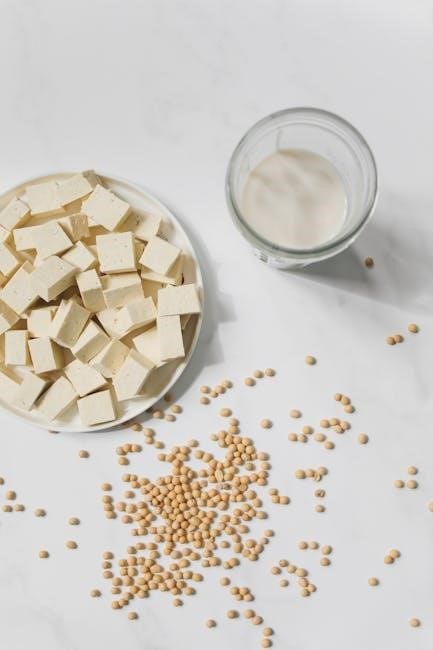
Core Components of the Diet Plan
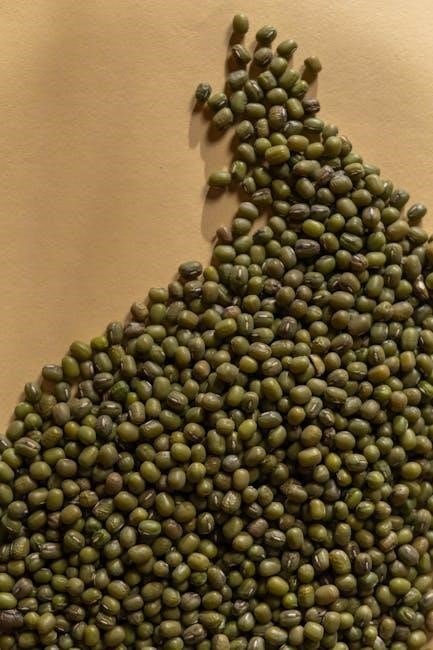
The high protein, low-carb vegetarian diet emphasizes plant-based proteins, healthy fats, and low-carb vegetables, while minimizing grains and sugars for optimal nutrition and weight management.
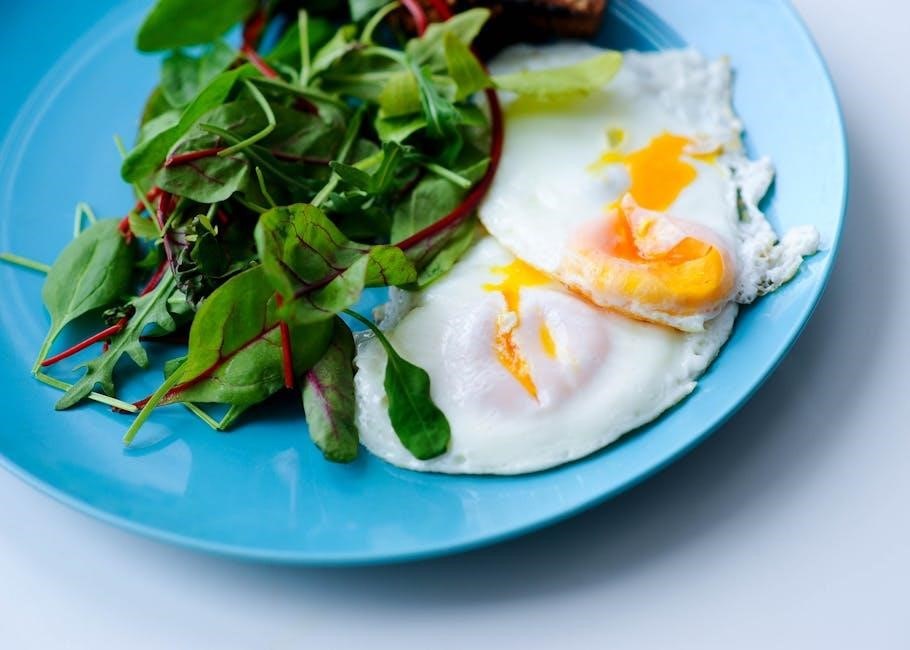
High Protein Vegetarian Food Sources
A high protein, low-carb vegetarian diet relies on plant-based foods rich in protein. Key sources include tofu, tempeh, lentils, chickpeas, quinoa, seitan, edamame, spirulina, and nuts like almonds and chia seeds. Protein-rich grains like farro and bulgur are also options, while low-carb vegetables such as spinach, broccoli, and zucchini provide essential nutrients. Legumes, though higher in carbs, can be consumed in moderation. Fermented foods like miso and natto offer additional protein. For convenience, plant-based protein powders and Greek yogurt (for those including dairy) are excellent supplements. These foods ensure adequate protein intake while maintaining low carb intake, supporting muscle growth and overall health.
Low-Carb Vegetarian Food Options
A low-carb vegetarian diet emphasizes whole, nutrient-dense foods. Focus on non-starchy vegetables like leafy greens, broccoli, cauliflower, and zucchini. Avocado and olives provide healthy fats while keeping carbs low. Nuts and seeds, such as almonds, walnuts, chia seeds, and flaxseeds, are excellent low-carb options. Protein-rich foods like tofu, tempeh, and seitan are also low in carbs. Incorporate small portions of low-carb grains like almond flour or coconut flour for baking. Herbs, spices, and vinegars add flavor without adding carbs. For dairy, opt for unsweetened almond milk or Greek yogurt. Always check labels to ensure items align with your low-carb goals while meeting vegetarian standards.

Sample 7-Day Meal Plan
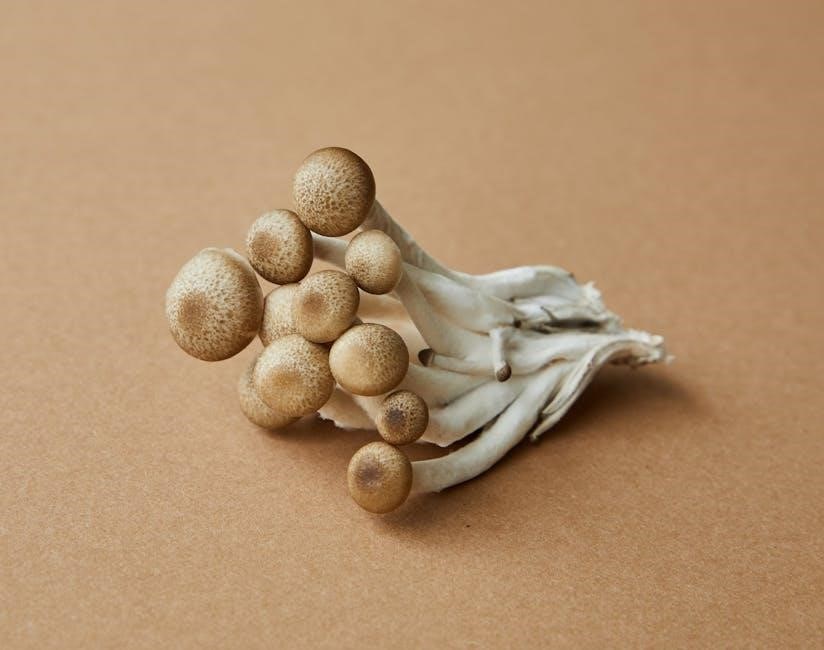
A structured 7-day meal plan offers variety, ensuring high protein and low-carb intake through balanced breakfasts, lunches, dinners, and snacks, tailored to vegetarian preferences and nutritional goals.
Breakfast Ideas
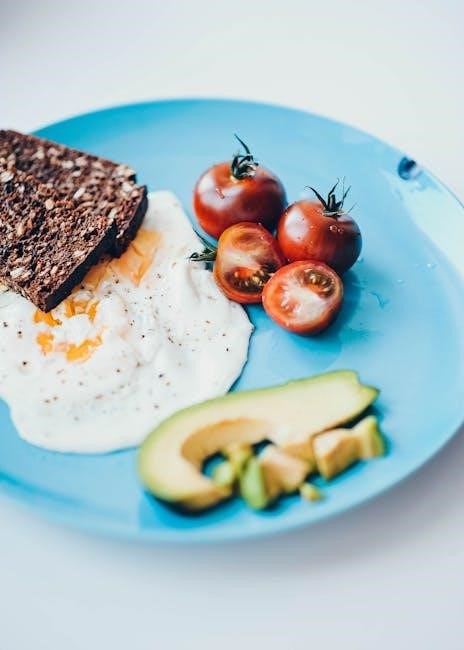
Start your day with protein-rich, low-carb vegetarian breakfasts. Greek yogurt with chia seeds and berries offers a creamy, protein-packed start. Tofu scramble with spinach and avocado provides a hearty, plant-based option. For a quick meal, blend a protein smoothie with almond milk, protein powder, and frozen veggies. Cottage cheese with sliced cucumber and a sprinkle of flaxseeds is another nutritious choice. Egg-based dishes, like a veggie omelet, are also great for non-vegans. These breakfast ideas ensure a balanced mix of protein and healthy fats while keeping carbs low, helping you stay energized and focused throughout the morning.
Lunch and Dinner Recipes
For satisfying lunches and dinners, focus on protein-rich, low-carb vegetarian options. Quinoa salad bowls with chickpeas, roasted veggies, and a lemon-tahini dressing make a nutritious and filling meal. Stuffed bell peppers with lentils, spinach, and feta cheese provide a hearty, balanced option. Grilled tofu or tempeh with a side of cauliflower rice and steamed broccoli is another great choice. Veggie-packed stir-fries with edamame and a soy-ginger sauce are both flavorful and protein-rich. These recipes ensure you meet your protein goals while keeping carbs low, offering a variety of textures and flavors to keep your meals exciting and nutritious.

Snacks and Supplements
Snacks like almonds, chia seeds, and protein bars support your diet, while supplements such as pea protein powder and iron boost nutrition and energy levels naturally.
Healthy Snack Options
For a high protein, low-carb vegetarian diet, snacks like Greek yogurt, cottage cheese, and nuts are excellent choices. Almonds, chia seeds, and pumpkin seeds provide both protein and healthy fats. Hard-boiled eggs and edamame are convenient options, while veggie sticks with hummus or guacamole offer fiber and protein. Protein smoothies made with spinach, almond milk, and pea protein powder are also a great snack. These options keep you satisfied without exceeding carb limits. Always choose portion-controlled snacks to maintain your dietary goals. Incorporating these into your routine ensures sustained energy and nutrient balance throughout the day.
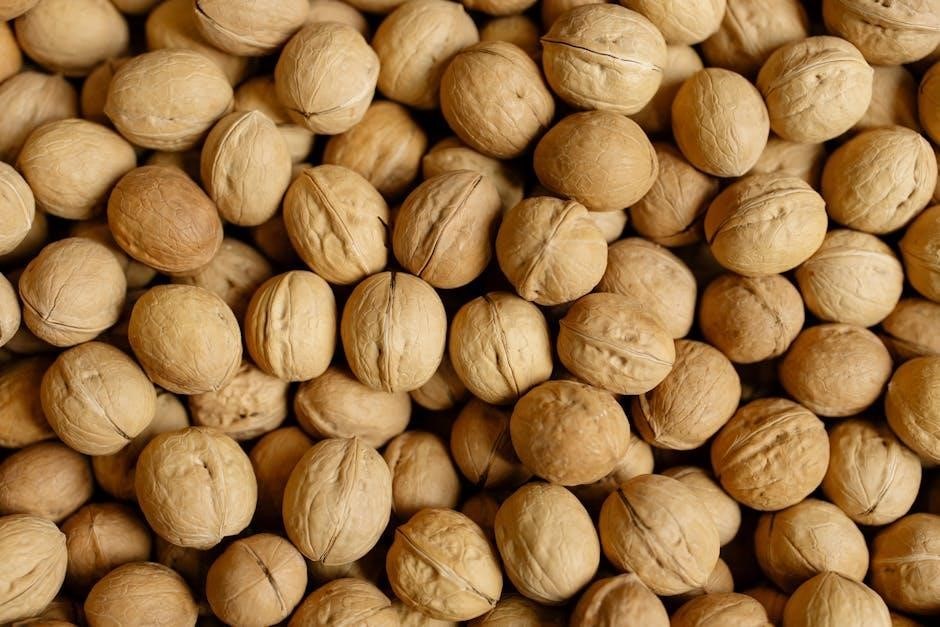
Supplements for Protein and Nutrient Support
Supplements can enhance a high protein, low-carb vegetarian diet by addressing potential nutrient gaps. Pea and hemp protein powders are excellent plant-based options for boosting protein intake. Additionally, iron, B12, and omega-3 supplements are often necessary for vegetarians, as these nutrients are typically found in animal products. Fiber supplements like psyllium husk can support digestion, while chromium and berberine may help regulate blood sugar. Probiotics are also beneficial for gut health and immune function. Always consult a healthcare provider before starting any supplementation to ensure they align with your dietary needs and health goals. These supplements can help maintain balance and support overall well-being on a high protein, low-carb vegetarian diet.

A high protein, low-carb vegetarian diet offers a sustainable, balanced lifestyle, promoting weight management and muscle growth. Track progress, stay motivated, and consult a dietitian for personalized adjustments.
How to Customize the Diet Plan
Customizing the high protein, low-carb vegetarian diet involves tailoring it to your specific needs and lifestyle. Begin by evaluating your protein requirements and activity level to determine the appropriate intake. Choose from a variety of plant-based proteins such as beans, lentils, and tofu, and adjust your carbohydrate consumption according to your energy expenditure. Consider your personal preferences to maintain meal variety and enjoyment. If needed, incorporate supplements to ensure you’re meeting all nutritional requirements. Regularly monitor your progress and adjust the plan as necessary to stay on track. Utilizing online resources or consulting a dietitian can offer personalized recommendations, enhancing the effectiveness of your diet plan and helping you achieve your health objectives with ease.
Tracking Progress and Staying Motivated
Tracking your progress and staying motivated are crucial for the success of your high protein, low-carb vegetarian diet. Use a food diary to monitor daily intake, ensuring you meet your protein and carb goals. Regularly weigh yourself and measure your progress. Celebrate small milestones to keep motivation high. Share your journey with friends or join a support group for encouragement. Reward yourself with non-food related treats to stay positive. Keeping a progress journal can help you stay accountable and motivated. Tracking your journey visually with photos or graphs can also provide a clear picture of your achievements, helping you stay committed to your health goals.
